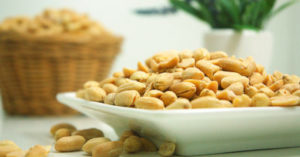Coenzyme Q10 (CoQ10) is an antioxidant that is made in the human body and helps convert food into energy. CoQ10 is needed for the basic functioning of the cells as well as for our immune system. It is distributed in the membranes of the cells and possibly even serves as a membrane antioxidant.
Importance of Coenzyme Q10
The antioxidants fight free radicals in the body, which damage cell membrane and even cause cell death. Researchers believe that free radicals contribute to the aging process, as well health problems such as heart ailments and cancer. Hence, antioxidants, such as CoQ10, play a major role. CoQ10 can neutralize free radicals and even help prevent some of the damage they cause. Coenzyme Q also bolsters the immune system and improves immune function in HIV/AIDS patients.
Related: Superfoods contain Antioxidants
How Does CoQ10 Boost the Immune System?
The tissues and cells involved in the functioning of the immune system are dependent on energy. So, they require an adequate supply of CoQ10 for optimal functioning. Studies show that CoQ10 has an immune-enhancing effect and saves immune cells from being damaged by their own agents of destruction. It also reduces the damage caused by free radicals to the communication pathways in the immune system.
Learn More: Foods For Boosting Immunity
Coenzyme Q10 Deficiency Symptoms
Fatigue: We already mentioned that CoQ10 is crucial to the production of energy in the body. Hence, its deficiency can cause fatigue. People with low levels of this enzyme may feel tired upon waking or exhausted after walking for a few minutes.
Stress, mood swings: Some people may also experience mood swings such as loss of enthusiasm, slight depression and difficulty in handling stress.

Chronic pain: People deficient in CoQ10 experience frequent headaches, migraines, jaw pain, or muscle and joint aches. There is also a chance of developing fibromyalgia, a condition marked by pain and extreme sensitivity to touch.
Weak immune system: Those having deficiency of CoQ10 are more susceptible to cold, flu and other viruses. Some even suffer from chronic gum infections.
CoQ10 Ideal Daily Dosages
- 30-100 mg General health
- 90-160 mg Heavy exercisers
- 60-160 mg Family history – heart problems
- 100-200 mg Mild heart ailments
- 200-300 mg If taking statin drugs
- 300-360 mg Congestive heart problems
- 1,200 mg Those with Parkinson’s
Sources of CoQ10
Your body synthesizes some CoQ10 on its own, but you can get some from your diet as well. Here’s how:
Poultry: 80gms cooked chicken has roughly 1.4 milligrams of CoQ10. A medium hardboiled egg offers 0.1 milligrams.
Nuts, seeds, and oils: Peanuts are one of the heartiest plant sources of CoQ10. 20gms of roasted peanuts has 0.8 milligrams. Sesame seeds provide 0.7 milligrams from 20gms. If pistachio nuts are your go-to snack, you’ll get 0.6 milligrams of CoQ10 every 20gms and as much as 1.3 milligrams from 1 tablespoon of soybean oil, or around 1 milligram from a tablespoon of canola oil.

Fruits and vegetables: A medium-size orange contains 0.3 milligrams of CoQ10, while one cup of strawberries gives 0.2 milligrams. Broccoli and cauliflower further up your coenzyme Q10 intake. One-half cup of steamed broccoli gives 0.5 milligrams, while the same amount of cooked cauliflower provides 0.4 milligrams of CoQ10.
For more information on other foods that can boost your immune system, click here.
